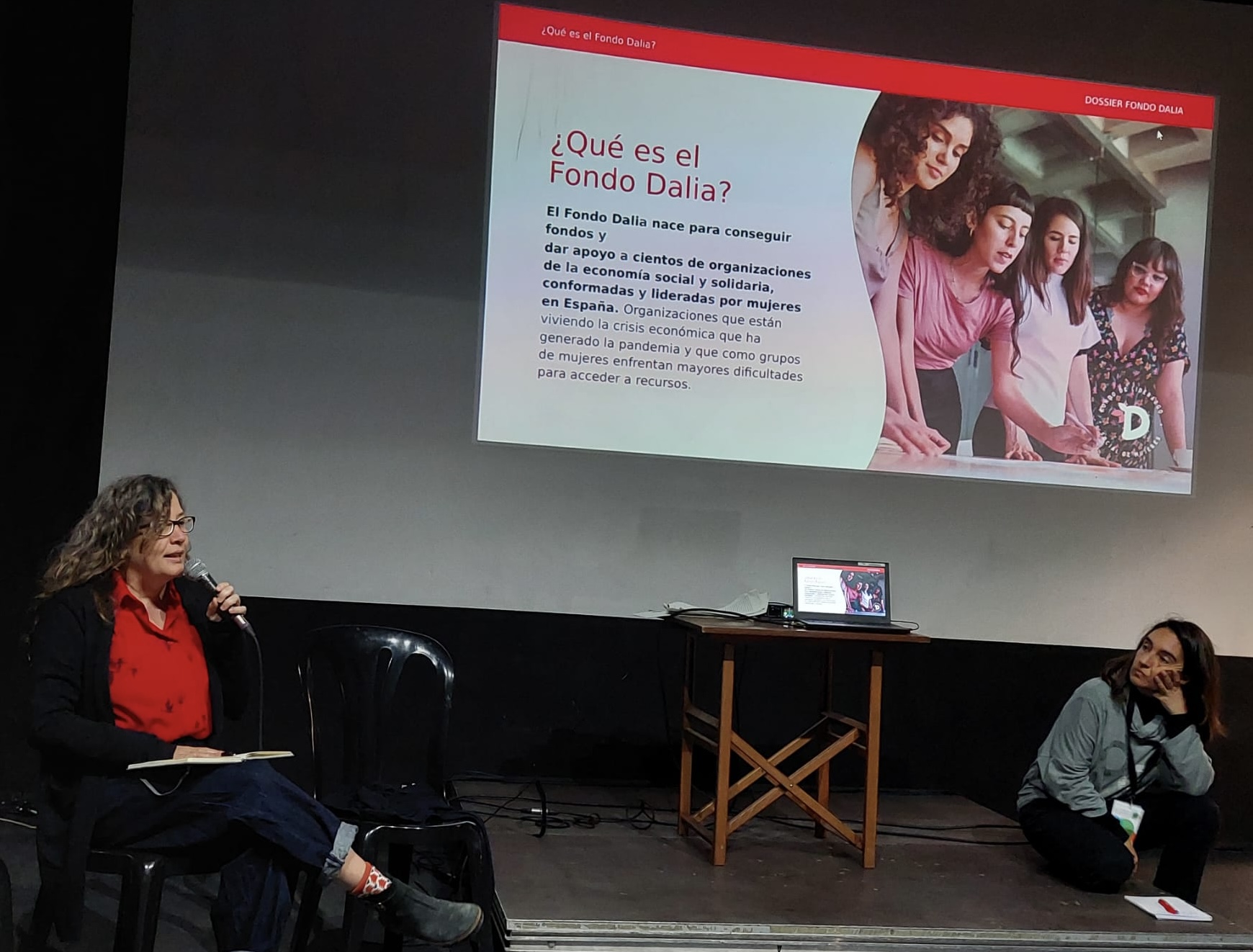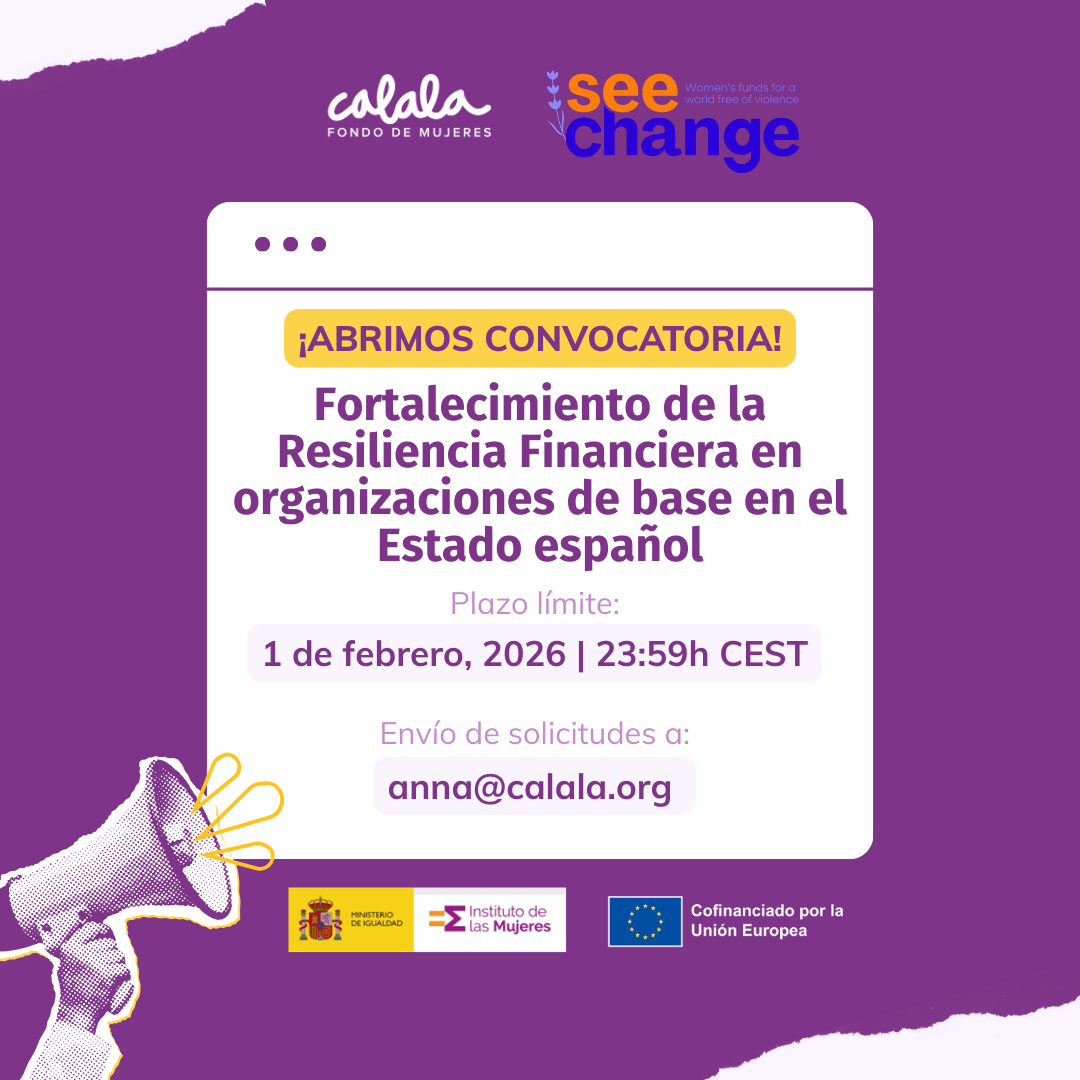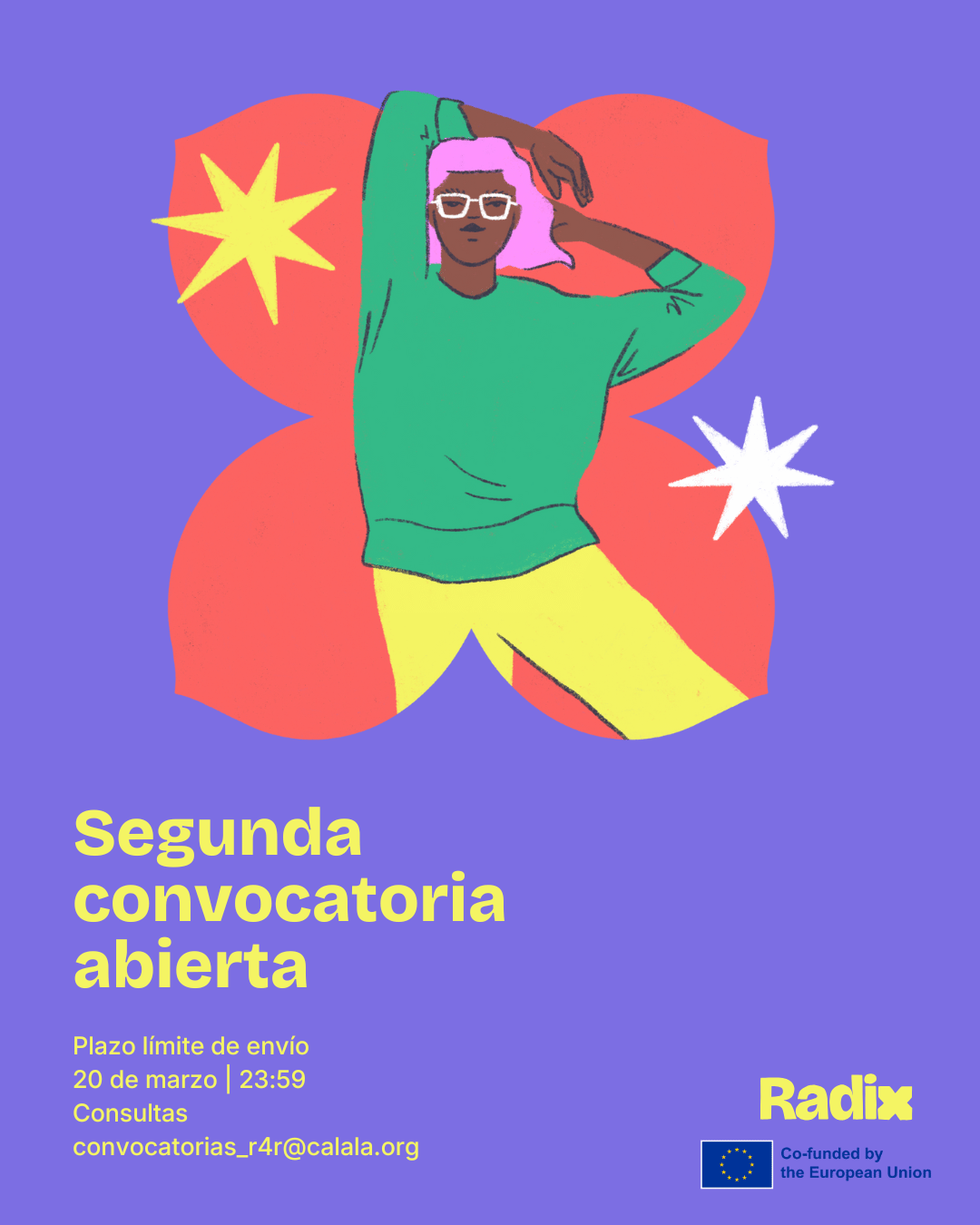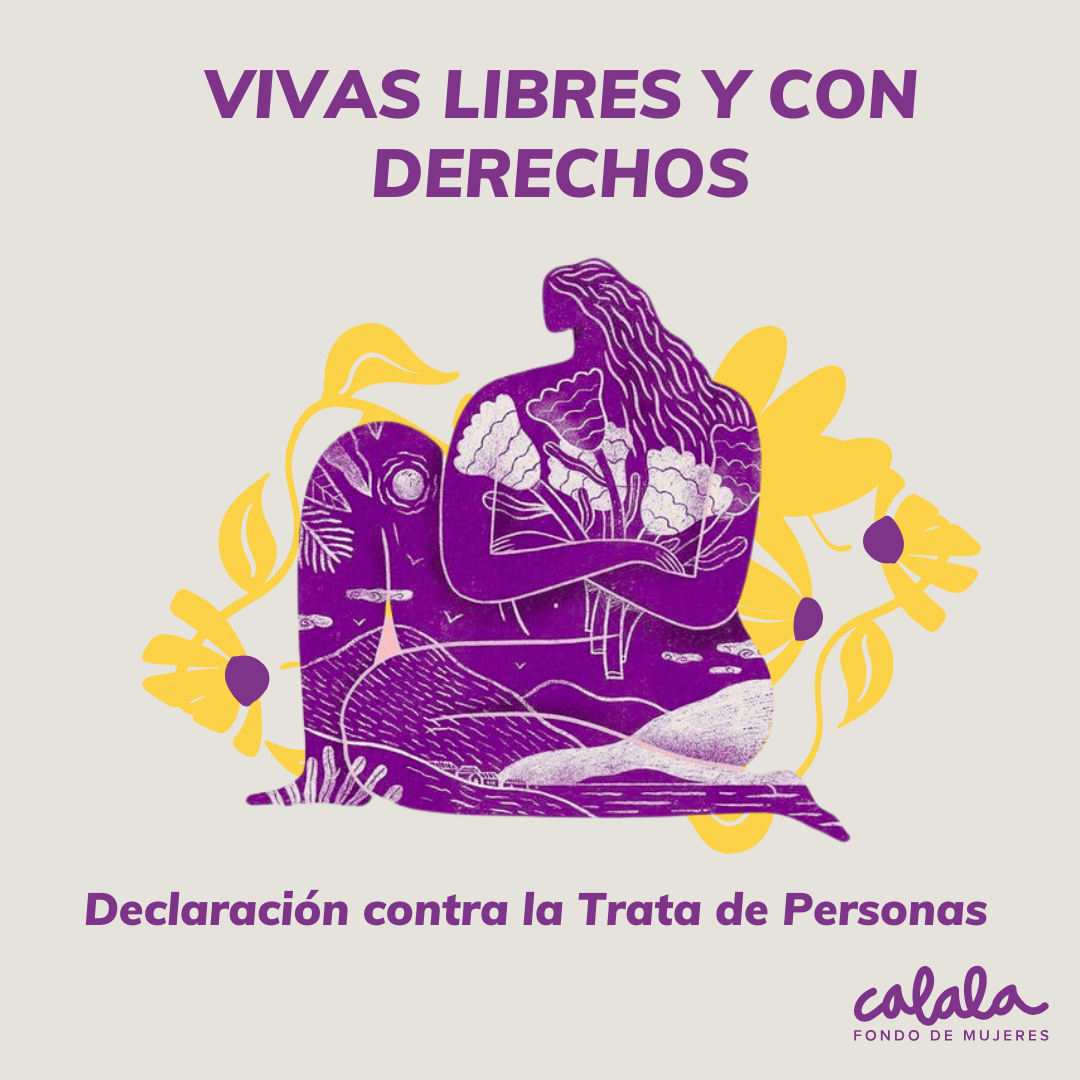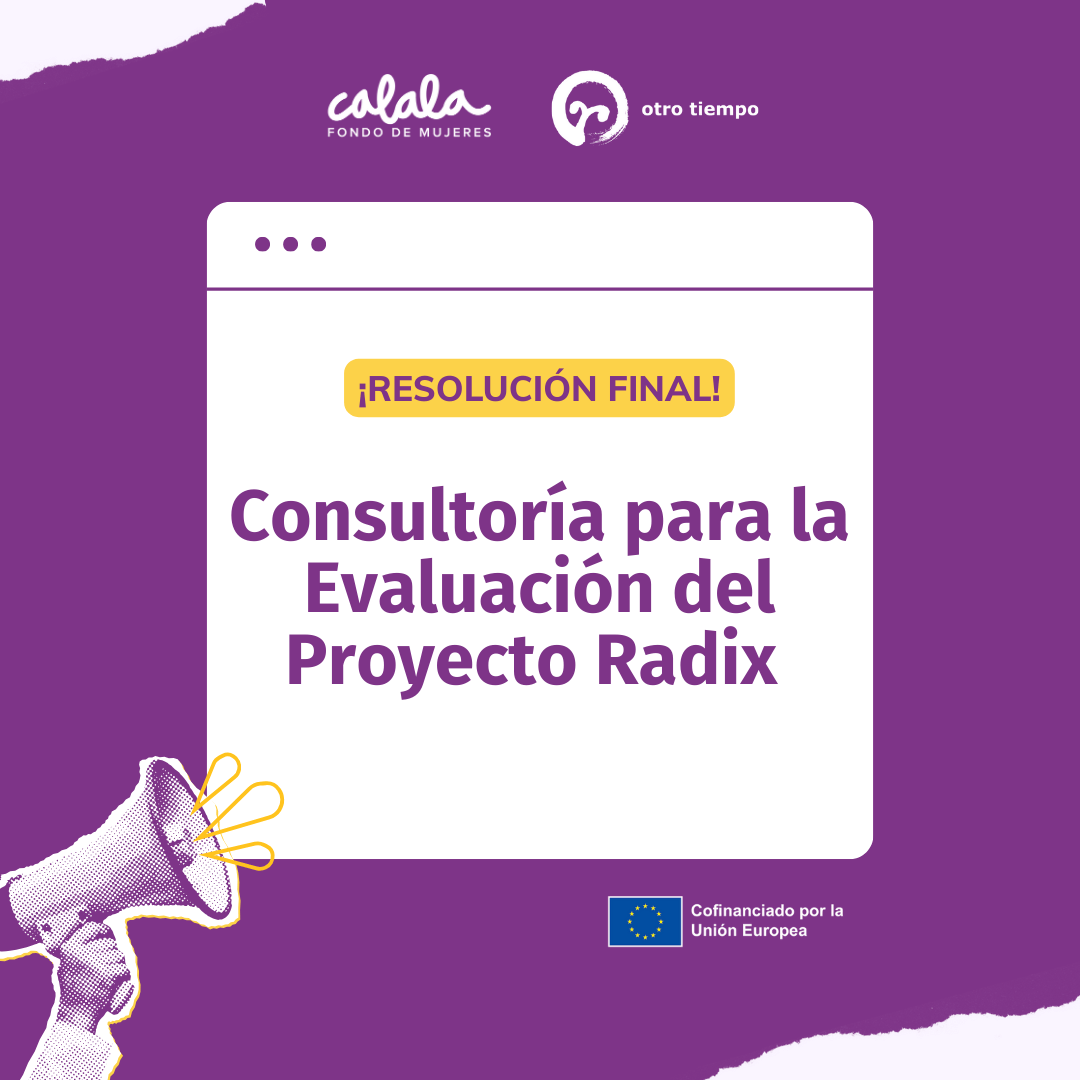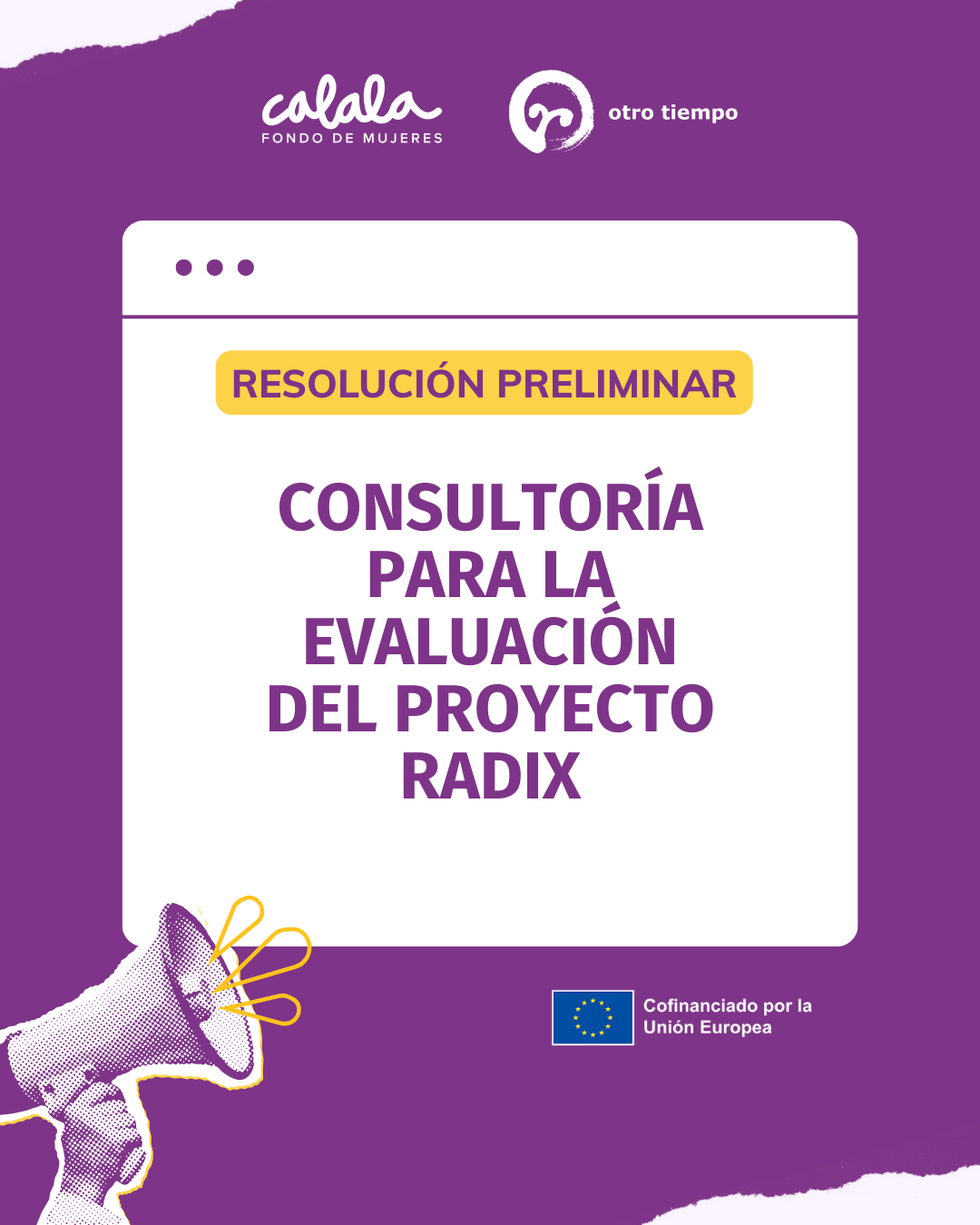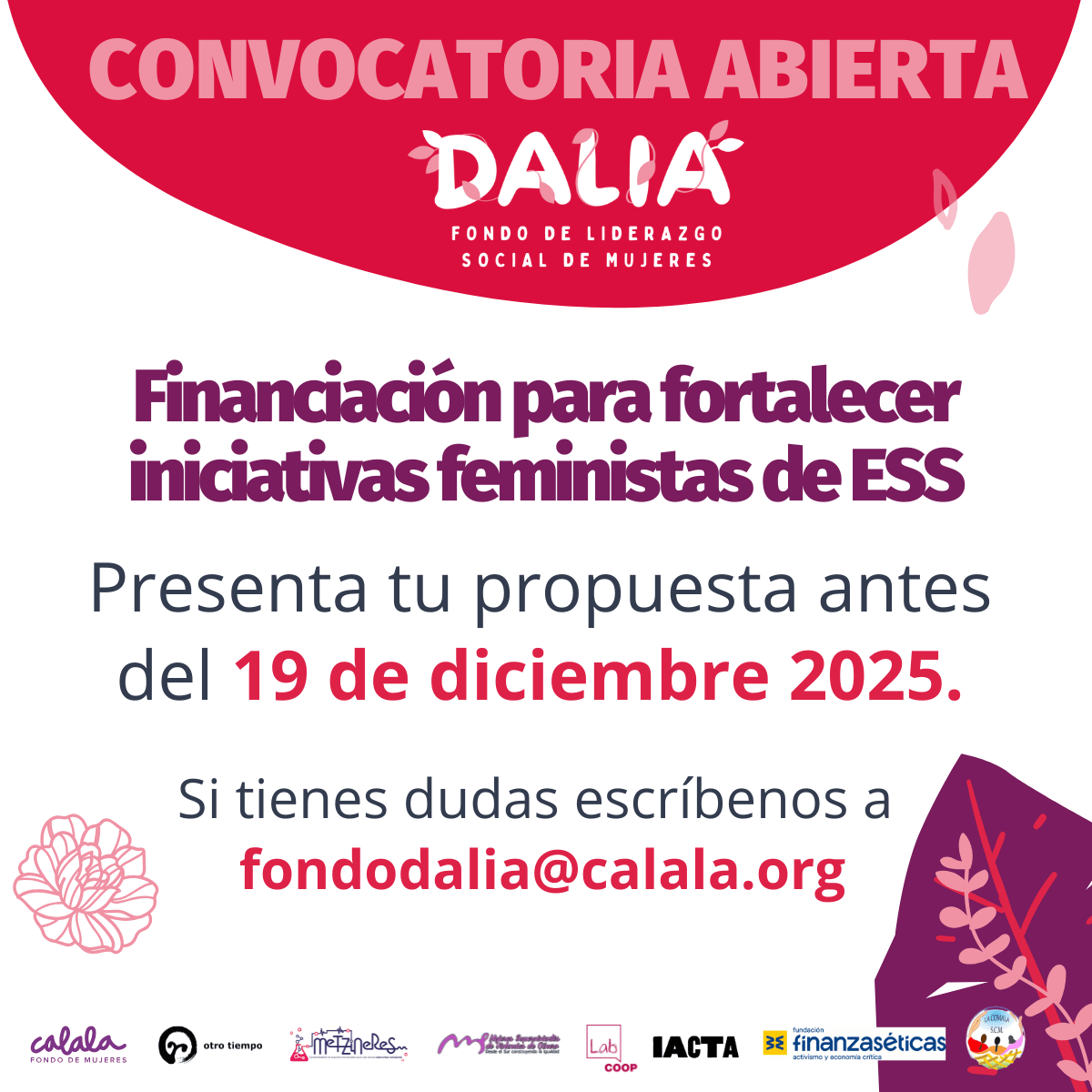By María Palomares Arenas. Executive Director of Calala Fondo de Mujeres
Many things can be said about Shakira's latest song, but here we are left with the idea that “women don't cry any more, women make money”. That this truism should be stated tells us a lot about the strangeness that still surrounds the relationship between women and money. My daughter, when she sang the lyrics, found it hard to identify what she was saying. She sang: “women grow up”... the billing was difficult to understand.
Yes, women make money, and women like money, but what about feminist organisations? Do we also like money? That's another matter.
When we opened the Calala women's fund in Spain, the first responses were of rejection. The feminist movement does not need money, activism is not done with money; money brings conflicts and corruption, it generates power relations and dependence. This idea of activism as sacrifice, as selfless dedication, as a struggle against the capitalist system, and which, therefore, does not need capital to be carried out, is not an idea that is only found in the feminist movement, I believe that, in fact, many other social movements would defend this position.
We had to build a whole argument to defend that yes, activism needs resources too. That with money we can do more things, and that above all we can generate healthier and more sustainable conditions for our participation, conditions that help us not to burn people along the way. But above all we discovered that there are people who do need resources to be able to count on the privilege of freeing up hours of their daily lives to dedicate to the collectives and movements in which they participate, everything that we at Calala call “feminisms on the margins”: migrant women, domestic and care workers, racialised women, sex workers, we said yes to the question of whether they needed funding for their organisations.
Since 2012, Calala has funded women's and feminist organisations led by these collectives, to which we have given more than a million euros, and which has been spent on paying salaries to women who are fighting everyday injustices, paying for transport and snacks to make it easier for women to participate in meetings, experts to help amplify speeches and demands, and creating canteens, food banks and other products needed by the women in their organisations. From these groups we have learned that the way we see activism from here, the one that is done from 5 to 9, once you get off work, is not the kind of activism that everyone can enjoy. We have learned that in order to participate and build networks and movements we need to address women's basic needs as well.
Long live evil, long live capital
And where do we get the money from in Calala, to be able to support feminist organisations? Wherever possible. Calala has a funding structure with 50% from public sources and 50% from private sources. The public money is what we are all used to asking for: public calls for subsidies for women's organisations, cooperation projects, social action organisations. These are relevant resources, far below the resources that are distributed in the form of bids and that normally end up in the hands of the private for-profit sector, but they are relevant. But these resources are very rigid, very unimaginative, they do not allow us to do what we would like to do and to attend to the real needs of the organisations we support: they are resources that must normally be spent in the form of a project and that have strong limitations on what can be paid for and how it must be justified.
So we like the money that comes from the private sector, what we call philanthropy. These are donations from private foundations that give us much more freedom to act and spend as we really need to. Of course, it is money that comes from large fortunes that have enriched themselves within this capitalist system, thanks to the exploitation of labour and the accumulation of surplus value. So, yes, they are evil. Even so, in Calala we think that we have to spend this money ourselves, making it reach grassroots organisations and social movements.
Here we have an important debate with the ethical finance sector and the social economy, which have the hypothesis that with capitalism we do nothing. That we should generate our own economy with those resources that we manage to take out of the system. It is a very valuable vision that will bear fruit in the long term, but we think that now we need the money, and that it is accumulated in the private sector, so we have to go there to find it.
Underfunding of women-led projects
Because we need the money now. We want money for doing. And the data says that women's organisations are the most underfunded of the social sector organisations, the Third Sector, Social Economy or Cooperation. It doesn't fail, we are always in the funding glue.
According to research done in 2021 “Where is the money for women's rights?”, 99% of donations from foundations and development aid globally still do not go directly to women's rights and women's organisations. According to our data, a 55% of the women's and feminist collectives we support in Spain do not have access to other funders. In 2021, 37% of the groups had a budget of 5,000 euros or less and 28% had a budget of between 5,000 and 20,000 euros. Only 9% of the organisations we funded had a budget of more than €100,000.
The study conducted in 2021, on the economic situation of cooperatives and social economy organisations led by women, showed that 41.3% had an income of less than 20,000 euros, 20% between 20,000 and 100,000; 22% between 100,000 and 250,000 and only 9% of more than 250,000.
We are talking about professionalised organisations, with human resources and a stable structure, that work on important issues such as care for women who have suffered violence, training and education, research and communication, technical and technological consultancy... Services that the administrations usually subcontract out and which are normally managed by large companies in the Social Action sector that have access to significant amounts of public resources.
The care sector and the rescue industry
In early 2022, together with environmental and ethical finance organisations, we carried out an analysis of the destination of the European funds that Spain would receive in the Next Generation Europe aid package. The Spanish government drew up a plan with 30 key measures aimed at boosting economic sectors linked to the green transition and the feminist economy. Of these 30 programmes, only two had a clear gender component, the programme for the care economy and the one for a more inclusive labour market. We looked in depth at the care economy component 22, and saw that 60% of the resources allocated to implement this programme went to the construction sector, to create and improve places in care institutions. We also saw that the resources destined to the entities that manage these places remained in the hands of the big companies in the care sector, companies such as CLECE of Florentino Pérez, or others with NGO format, but which also form part of what we call the rescue industry (1), those entities that make money out of poverty.
Wouldn't it be wonderful if the women who work in the care sector, caring for people in situations of dependency, such as the elderly, people with mental health problems, people who use drugs, women who experience violence, were the ones who run the companies that manage these services, and who manage the resources that are allocated? Could we dream of a sector, the care sector, with dignified work, socially valued, with reasonable and well-paid conditions?
We have the right to dream, and we want to create the conditions for dreams to come true. We have the right to dream, and we want to create the conditions for dreams to come true, and so, yes, we need money. We need money, but we also need to change the mental and social schemes that affirm that money is not a woman's business, that reproductive work should not be paid for, that public resources should be spent efficiently and therefore should be allocated to large and consolidated entities and companies, usually managed by men. So yes, we need more and more women talking about money, deciding about their money and asking for the money they are entitled to.
*Notes
(1) A term adopted by Laura Agustín, to highlight the development of a social and economic sector that proliferates in projects that are not only charitable but also governmental, police, medical, psychological and commercial in nature and that deal with people in vulnerable situations.
This article was published by the Reality of Catalonia on 9 March 2023.
